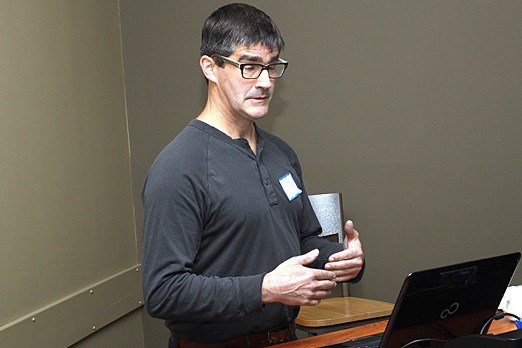Forest management decisions should be made at the local level, says the organizer of a community-based forestry conference held Tuesday at Lakehead University.
Peggy Smith, an associate professor in the faculty of natural resources at the Thunder Bay school, said the province’s planned forest tenure reform, which passed third reading at Queen’s Park on Tuesday, said the newly created local forest management corporations leave too much power in the hands of the province.
This could potentially tie hands at the local level and leave decisions being made that aren’t necessarily in the best interests of communities in Northwestern Ontario.
“It doesn’t go far enough. Boards that are going to be set up under those models will allow for community and First Nation representation, but it’s still not community controlled. They’ll just be a representative on a board,” Smith said.
The province did revamp the wording of the act, leaving the LFMCs to manage Crown forests and the competitive sale of timber in a given area, but also created enhanced shareholder sustainable forest licences, which allow groups of mills and/or harvesters to form a new company to manage Crown forest lands under the authority of the province.
That would appear to address some, but not all, of the concerns expressed by Smith.
“We would like to see communities themselves making the decisions about how they want to organize themselves, rather than the government saying here are your options, fit into our model.”
The focus, she added, should be on “happy, creative, innovative people,” freed up to let loose their creative side to create industry and economic opportunities, which the forestry collapse has taken away over the past 10 years.
The communities, however, must be allowed to work out who is making the decisions, be it business, municipal government, residents or a combination of the three.
“We’ve got some challenges. You can have more control, but a lot of times it’s local elites that end up in charge, and that’s not what we want. We want a more democratic system and a broader range of community representation,” Smith said. “And we think that can be worked out at the local level. So we don’t want to tell people you have to do it this way. It’s getting people together and saying, ‘We’re working together, this is how we’d like to work together.’”
Business will have a loud voice in the process, Smith added, because it’s the business interests that will ultimately provide the jobs and make it profitable.
“Obviously communities are interested in generating wealth and keeping money in Northern Ontario. So it is always going to be an element. I don’t think it has to be a barrier. If it’s solely focused on business, then maybe some community goals are going to get left behind,” Smith said.
Community forestry isn’t the be-all, end-all solution, but it’s a good start and better than what’s being proposed, she said.
“It’s not always possible through community forests to deal with inequity, for example, the position of First Nations in Ontario, who are at the bottom of the heap. Is community forestry going to solve that problem? It may at one point, but it doesn’t necessarily do it right from the get-go.”
The LFMC’s, which the province in January initially limited to a pair of pilot projects, have since become the standard in the forest-tenure legislation, and come equipped with the power to arbitrarily remove wood allocation with little recourse.
While this might work in the case of a company that’s gone bankrupt yet refuses to give up its idle timber rights, opponents, including the Ontario Forest Industry Association, are worried the bill could allow the province to strip allocations from smaller companies and hand them over to larger ones.
Chander Shahl, a colleague of Smith’s in the natural resources department, said Canadians, and Ontarians in particular, need to take notice of how forests are managed in other countries.
Shahl, who spent 17 years working in the Indian forest industry, said Ontarians must realize the old commodity-based industry will likely never return, but that doesn’t mean a new one can’t rise from the forest floor to start a whole new economy.
The province needs to find a way to make that transition, Shahl said.
“It could be in the form of value-added products. It could be in the form of bio-economy. It could be in the form of bio-refining or some of those things that may come up,” Shahl said.
“People may not have heard of all those things. So first of all it is a capacity building that we all tried in India and it was very successful. And that’s why India is always given as one of the examples of … community forest management. We have learned a lot of lessons.”
The one-day conference was put on by the Social Sciences and Research Council of Canada and addressed barriers, relationships with Aboriginal partners, research needs and next steps.
